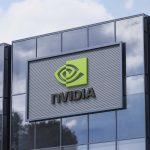
- Quantum & Chips
Nvidia Hits $4 Trillion as AI Chip Demand Explodes
5 minute read

Nvidia’s AI chip dominance propels semiconductor giant to unprecedented $4 trillion market value amid surging tech demand
Key Takeaways
- Nvidia becomes first $4 trillion company as shares surge 2% on Wednesday, driven by explosive demand for AI hardware and cementing its position as the world’s most valuable company
- Meteoric 15-fold growth over five years with market cap expanding from $0.96 billion in 1999 to $4 trillion in 2025, representing over 400,000% increase in 26 years
- $8 billion China revenue at risk as CEO Jensen Huang warns that export restrictions on H20 chips could result in substantial sales losses from the effectively closed Chinese market
Introduction
Nvidia stock surged more than 2% on Wednesday, propelling the tech giant’s market capitalization past a historic $4 trillion milestone. This unprecedented achievement marks Nvidia as the first company to reach such a valuation, driven by the explosive growth in generative artificial intelligence.
The California-based semiconductor company now leads as the world’s most valuable company, surpassing giants like Microsoft and Apple. Nvidia’s achievement underscores profound shifts in the tech industry’s business landscape and highlights the transformative power of AI infrastructure.
Key Developments
Founded in 1993, Nvidia surpassed the $2 trillion valuation in February 2024 and exceeded $3 trillion by June the same year. The company’s meteoric rise accelerated following the release of ChatGPT in late 2022, which sparked unprecedented demand for AI hardware capabilities.
According to CNBC, Nvidia’s dominance stems from its graphics processing units that are essential for powering large language models and AI training. The company has aggressively invested in research and development, maintaining technological leadership through rapid product iteration.
Nvidia has fostered a robust ecosystem around its CUDA software and hardware platforms, creating high switching costs for enterprise customers. This strategic approach has solidified the company’s position as the backbone for generative AI platforms, cloud computing, and high-performance computing solutions.
Market Impact
U.S. stocks rose in early trading Wednesday, with the S&P 500 up 0.7% and the Nasdaq composite climbing 1.1%. Nvidia’s 2.5% gain contributed significantly to the tech sector’s strong performance, while Microsoft added 1.6%.
Over the past five years, Nvidia shares have experienced remarkable growth, soaring more than fifteenfold. The company continues to see momentum, with shares climbing over 15% in the last month alone and surging 22% since January.
Nvidia’s market cap has grown from $0.96 billion in 1999 to nearly $4 trillion in 2025, representing a staggering increase of over 400,000% in 26 years. The company’s valuation now exceeds the combined market caps of several major chipmakers, highlighting its market dominance.
Strategic Insights
The AI gold rush is reshaping the semiconductor industry, with Nvidia at the epicenter. Demand for advanced chips is driving both revenue and research investment across the sector, forcing competitors to rethink their business models.
Other chipmakers are struggling to keep pace with Nvidia’s growth trajectory. AMD’s market cap stands at $225.89 billion, Intel’s at $101.59 billion, and Qualcomm’s at $176.22 billion, reflecting the significant gap in market valuation and investor confidence.
Strategic partnerships and vertical integration are becoming critical competitive advantages. Tech giants are seeking to secure supply chains and optimize AI infrastructure, leading to potential consolidation or strategic alliances across the sector.
Expert Opinions and Data
Despite Nvidia’s success, the company faces significant challenges from geopolitical tensions and chip export restrictions. CEO Jensen Huang stated during a May earnings call that “the $50 billion China market is effectively closed to U.S. industry.”
Nvidia reported that recent curbs on its H20 chips, specifically designed for China, could result in an $8 billion loss in sales. Huang emphasized to CNBC that losing access to the Chinese market would represent a “tremendous loss” for Nvidia’s sustained growth.
Industry observers note that Nvidia’s success is forcing rivals to accelerate innovation and reshape capital allocation priorities. Some investors express concern about overvaluation and the sustainability of such rapid growth, recalling past tech bubbles.
Conclusion
Nvidia’s $4 trillion market cap represents more than a financial milestone—it signals the pivotal role that AI and advanced computing now play in the broader economy. The company’s expansion into software, networking, and automotive AI widens its addressable market and diversifies revenue streams.
The achievement demonstrates widespread recognition that artificial intelligence infrastructure has become essential for modern business operations. Nvidia’s dominance continues to reshape the competitive landscape and drive innovation across the global technology sector.








